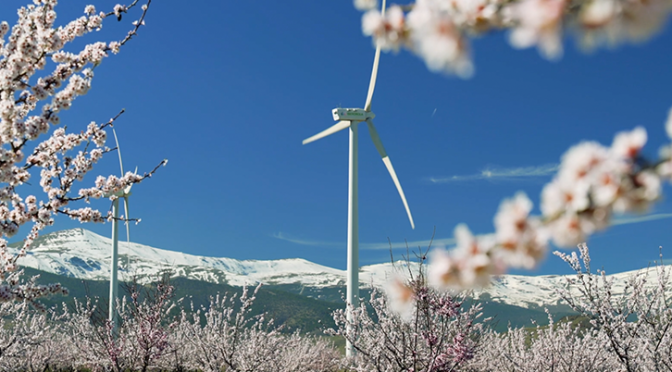Iberdrola has presented its Climate Transition Plan to the United Nations to achieve zero net emissions by 2040 in response to the call of the UN Secretary General, following a realistic, ambitious and responsible line.
The specific objective is based on achieving carbon neutrality of generation plants, its electricity distribution activity and its own consumption (scopes 1 and 2) by 2030 and net zero emissions in the entire value chain by 2040, with a science-based approach and an intermediate milestone pathway. On the one hand, a robust investment plan and levers for action, with a focus on achieving 100% renewable energy and smart grids, and driving fundamentally green procurement and climate solutions for its consumers. All of this is supported by solid technological and industrial partnerships.
Secondly, an accelerated action scheme based on values grounded in just transition: this has to be “people-positive” and “nature-positive”. And finally, an architecture of alliances, partnerships and public participation contributions at local, regional and global levels fully aligned with an ambitious approach to climate action.
Gonzalo Saénz de Miera, Director of Climate Change and Alliances at Iberdrola, added that “the presentation of this Plan to the UN ratifies the work that Iberdrola has been doing for years, with a clear commitment to accelerating decarbonisation and the implementation of renewable energies that help us to fight global warming in a positive way for people and nature. We are in the best position to work together with the UN and in alliances with third parties and to set an example to the rest of the world”.
With the climate crisis worsening and the gap in meeting the Paris Agreement targets, as shown by the recent report of the Intergovernmental Panel on Climate Change (IPCC), Antonio Guterres called on the business sector to lead action by presenting accelerated climate transition plans ahead of the climate summit to be held next September in New York in the framework of the United Nations Assembly.
These plans, to move towards net zero emissions, must be aligned with the ten recommendations of the Secretary-General’s own High-Level Panel of Experts report. These recommendations set out the elements for climate targets and associated plans to be comprehensive and avoid “green washing”: net zero emissions must be achieved by 2050 along the entire value chain including a pathway of interim targets; the plan must be transparent, science-based and backed by a robust investment plan based on renewable energy and with a focus on just transition and biodiversity protection; and companies’ public and lobbying activities must be geared in the same direction to promote climate ambition at the private and governmental level.
A line of work
Iberdrola presented its Climate Action Plan at COP 27 in Sharm el Sheikh (Egypt), the most ambitious presented by a company at the Summit, which brought forward the goal of carbon neutrality of generation plants, its electricity distribution activity and its own consumption (scopes 1 and 2) to 2030, and the total decarbonisation of its activities by 2040. This makes the company the energy company with the most ambitious targets in this area.
Iberdrola also presented its Biodiversity Plan at the World Biodiversity Summit in Canada, with the goal of achieving a net positive impact on species and ecosystems by 2030. The Plan addresses the impacts of the group’s activities on nature throughout the life cycle of its facilities, considering the supply chain and creating environmental, economic, and social value through ecosystem services.
Beyond these and other plans, Iberdrola is promoting, through various collaborative initiatives in its business alliances, such as the Spanish Green Growth Group and the Corporate Leaders Group, the implementation of the recommendations of the United Nations Group of Experts for the business sector to accelerate its transition to an emission-free, more competitive and robust economy.

